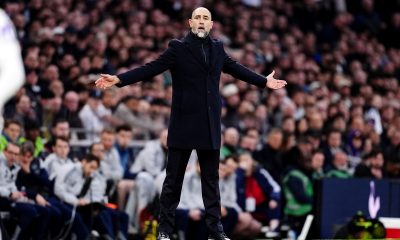With the upcoming international break slated for June, right after the Premier League season ends on May 25 and the Champions League final on May 31, Kane feels that the packed calendar leaves little room for rest.
The 31-year-old, who plays for Bayern Munich, will also be involved in the newly expanded FIFA Club World Cup from June 15 to July 13, which means his summer break will be practically nonexistent. Despite the gruelling schedule, Kane is focused on playing as much as he can to help his teams secure silverware.
“I don’t think the players are listened to enough,” Kane admitted. “Everyone has their own priorities, their tournaments, their rewards, and we, the players, are the ones expected to cope with it all. But that’s just the way it is. I love playing, so I can’t complain about being on the pitch.”
Kane stressed, however, that with proper management from coaches and clubs, players can still get the rest they need at certain points. “It’s not an easy issue to resolve, but there is potential for better balance if everyone works together,” he said.
His frustration echoes the concerns raised by other top players, including Liverpool’s Alisson Becker and Manchester City’s Manuel Akanji. Akanji has even suggested that the current schedule might force him to retire early. The Professional Footballers’ Association has also taken legal action against FIFA, calling the football calendar “overloaded and unmanageable.”
Kane recently scored his 71st goal for England in their 3-0 World Cup qualifier win against Latvia. He is now just 20 appearances away from surpassing Peter Shilton’s all-time record of 125 caps. This victory marked England’s second win in two matches under new manager Thomas Tuchel, who also expressed concerns about the strain on players.
Tuchel, who guided England to a 2-0 win over Albania before the Latvia match, is particularly worried about the lack of significant rest periods. “It’s not just about how many games players are playing; it’s about the fact that they rarely have a real break of three or four weeks. Even when they do get time off, they quickly jump into another competition,” Tuchel explained.
The German coach believes a proper off-season period, with a minimum of three to three-and-a-half weeks of rest and preparation, would be essential for the players’ well-being and the quality of the game. Tuchel has called on FIFA to reassess the calendar and potentially shift some international windows to ensure better player recovery.
As the debate continues over player welfare versus the demands of the modern football calendar, the pressure on governing bodies like FIFA to find a solution is growing. The question remains whether the system can evolve to better support the athletes who drive the game forward.

























